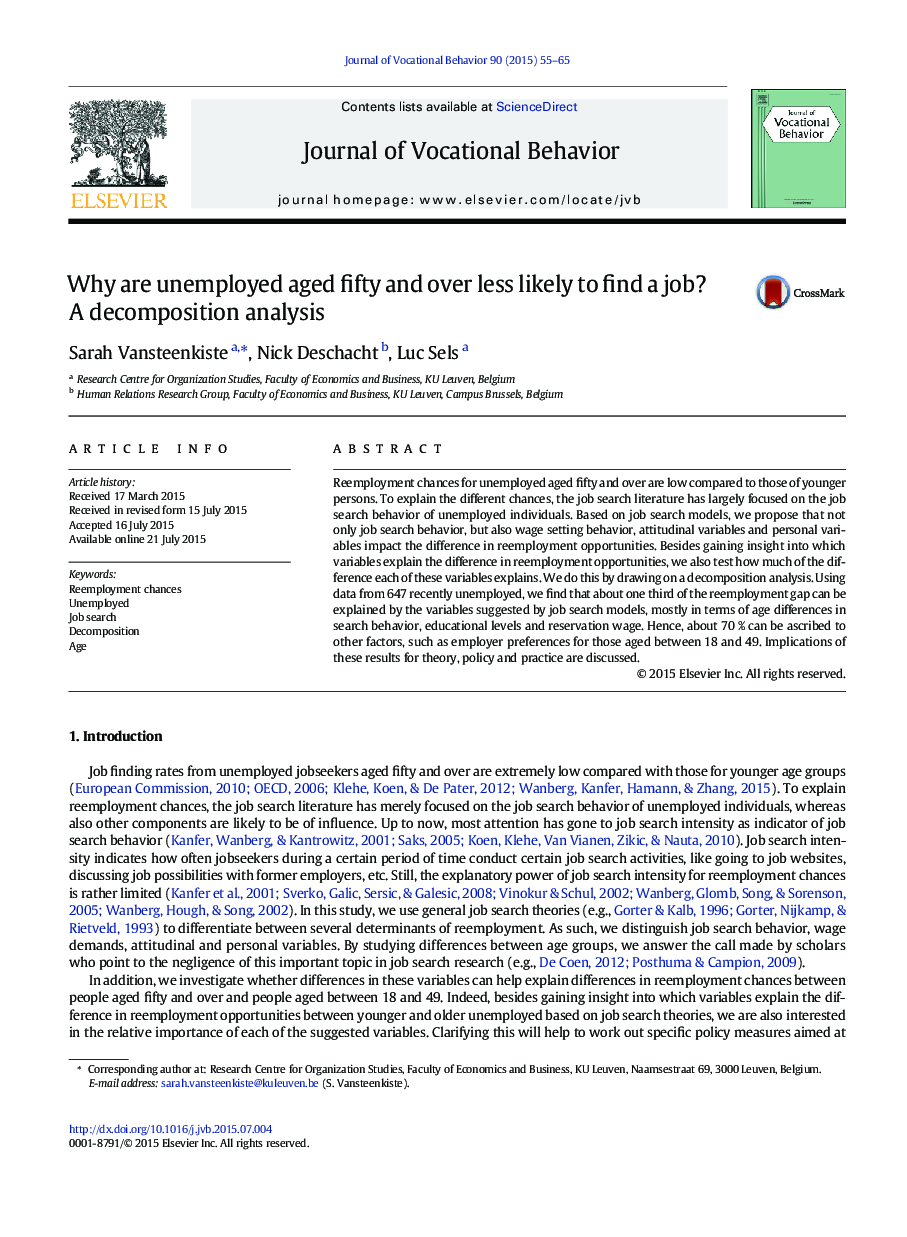| Article ID | Journal | Published Year | Pages | File Type |
|---|---|---|---|---|
| 886718 | Journal of Vocational Behavior | 2015 | 11 Pages |
Abstract
Reemployment chances for unemployed aged fifty and over are low compared to those of younger persons. To explain the different chances, the job search literature has largely focused on the job search behavior of unemployed individuals. Based on job search models, we propose that not only job search behavior, but also wage setting behavior, attitudinal variables and personal variables impact the difference in reemployment opportunities. Besides gaining insight into which variables explain the difference in reemployment opportunities, we also test how much of the difference each of these variables explains. We do this by drawing on a decomposition analysis. Using data from 647 recently unemployed, we find that about one third of the reemployment gap can be explained by the variables suggested by job search models, mostly in terms of age differences in search behavior, educational levels and reservation wage. Hence, about 70 % can be ascribed to other factors, such as employer preferences for those aged between 18 and 49. Implications of these results for theory, policy and practice are discussed.
Keywords
Related Topics
Social Sciences and Humanities
Business, Management and Accounting
Marketing
Authors
Sarah Vansteenkiste, Nick Deschacht, Luc Sels,
